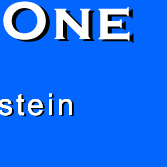December 18, 2000
Beyond the Dreams of Avarice
Intervention does not bring economic rewards
A
WAR BEHIND
I
always think of Britain being behind America by at least one war.
While the Gulf War was on the American right had a vibrant
minority opposing it, in Britain being to the right and opposing
the Gulf War was lonely.
I found out later that there were a couple of other
right wing types who opposed it, but that was it. There was
no John
Randolph Club, no Centre
for Libertarian Studies and no Buchanan
Brigades. I fell in with a load of provincial lefties, who regarded
my attachment to free markets and (horrors) cynicism about the motives
and reliability of Saddam Hussein – to be treachery. In Britain,
the Kosovo war did bring out some opposition
from the right, although still a minority. On the other side
of the pond the only Conservative minority was the Conservative
Establishment, the isolationists had captured the grass roots.
OILING
THE WHEELS
The
point of this reminiscing was to point out that the right in Britain
supported the Gulf War almost to a man. Now there where many reasons
for this. The war was being carried out by right wing governing
parties, there was the natural desire to get behind your country,
there was a feeling that Saddam had upset the natural order. And
there were other reasons. However the one I heard most, was the
question of oil. What if, we were asked, Saddam controlled the
oil supply? Oil prices would sky rocket, the strategic reserve would
be tapped, expensive car journeys, not being able to wear your T-Shirt
indoors during winter, oh yes and industry will wither on the vine.
It will be like 1973 all over again. Now this was from the self-styled
hard nosed realists, which affected me quite deeply, as I happen
to think of myself as a hard nosed realist. But vindication was
to come eight years later.
WHAT
HAVE WE GOT NOW?
Oil
prices have sky rocketed, the strategic reserve has been
tapped, expensive car journeys, etc, etc. It's like 1973 all over
again. Why? Well instead of Saddam Hussein controlling all the oil
stocks in Arabia, he just can't get his oil to market thanks to
the UN sanctions (and a on going bombing campaign against Iraq's
infrastructure). So the oil supply is constricted, and OPEC has
the whip hand. And this was after the war to give us cheap
oil. It seems that the hard nose realists were wrong, their war
increased the oil price.
HARD
AND HARDER NOSES
The
fact is that the self styled realists were dead wrong, not because
they were being too cynical but because they in reality had their
own idealistic ordering of the world. Firstly why would expensive
oil be a bad thing for the UK? We're a net oil exporter, and an
expensive oil producer at that (off shore drilling isn't cheap).
High oil prices would benefit our marginal fields more than almost
any one. The American and European economies may take a dive but
is that really any of our concern any way, us hard nosed realists
should care as much for the French as we do for the Iraqis.
TAXING
TIMES
If
high oil prices were really that bad, why is government so intent
on taxing petrol? Those of us who drive are being taxed at around
75% for the luxury of getting to work or shopping. And this inexorable
increase was started in the aftermath of the Gulf War. If high oil
prices are so bad, then surely petrol taxes are where the cutting
should start. Any governmental volunteers?
DON'T
BUCK THE MARKET
Anyway
would a high oil price really permanently cripple the Western economies?
Well not really. Oil is only another source of energy after all
(you can't really talk about its use for plastics if you want to
burn the stuff). What would the economies do? They are after all
market economies, they would do what a market does best, adapt to
new circumstances. If the market is a discovery mechanism it can,
well, discover. New sources of oil can be found, like in the North
Sea. Other energy sources can be tapped, Britain has enough coal
for a thousand years, or so we are told. Nuclear energy could also
be used. We could also get used to using less energy, and buy the
slightly more expensive fuel efficient cars. There are myriad ways
in which the market can react. And if you can't really trust the
market, what is the point of being right wing, or a hard nosed realist?
IT'S
NOT JUST THE TAX RATES
The
free market case against, say, subsidising dying industries, boosting
aggregate demand or state directed research; is as valid against
foreign intervention as it is against domestic folly. Expensive
oil would have meant some short term pain to our trading partners
and to some of us elements of British industry, but why do we doubt
that the market would not have coped? The fact is that free market
thinking doesn't just mean privatising the drains or making marriage
registries competitive, it means looking at a wider angle. Thinking
that is wishful at home – "if only we could control the price
of oil" – is equally as misplaced abroard – "if only we
could force the Arabs to pump oil cheaply." It seems that most free
marketeers leave their principles at the airline check in. The economic
case for intervention is simply a nonstarter, and all the talk of
military equipment or high powered diplomacy must not bind us from
the essential truth, intervention is economic moonshine.
OPEN
MARKETS
In
a little noticed (OK, I didn't notice) but highly
revealing piece in the left
wing Guardian, Hugo
Young, the mouthpiece of the Blair regime, shilled for more
small African wars. The logic, he made out, was inescapable, not
only would we be doing good, but we were going to benefit as well:
Wanting
to export, we need growing markets in the developing world. Without
political stability, these markets have little chance of creating
the prosperity British business could help to feed.
Our
goods? Why should a country buy our goods when American goods are
cheaper, Japanese goods are better made and French goods are more
stylish? The fact is that in any economy imports are going to be
a small part of economic activity. This is more so in primitive
economies with a large subsistence sector, although growing food
for your own use is never allowed near GNP statistics. Now of those
imports, assuming free trade, why should those imports be yours?
Gratitude? Even if a large proportion of imports were bought from
the liberating country, don't assume that the majority would be,
unless you wished to stunt the economy and breed resentment through
selective tariff barriers. And the cost of stabilisation is both
large and uncertain. You don't just have the troops, but you also
have roads to build, children to educate, hospitals to restock.
And for how long do you do this before the country is stable? The
pay off is comparatively tiny for a large and uncertain investment.
THE
MANY VS. THE FEW
There
is one other thing that this Keynesianism with bombs seems to miss
– the people benefiting from this are by definition limited
– road companies, exporters of luxury cars to African dictators,
munitions suppliers. If you figure in their workforces and the church
pension funds that always seem to own shares in the dodgiest companies,
these people will never be more than a minority. The people who
pay tax, or are in line to receive reduced or delayed benefits comprise
just about everyone. Even an action that showed a "profit" (and
they don't) would in effect be redistributing wealth from the many
to the few, and the wealthy few at that. While this is yet another
reason for showing that it is economically bad, it means
that this course of action is politically viable. The groups
that benefit will find it profitable to lobby for these things,
the groups that are at a disadvantage find it such a small disadvantage
that they won't. Well that's more public choice theory (or something
like that). Of course the interventions almost always make a net
loss, but they still benefit a small, lucky few.
|









